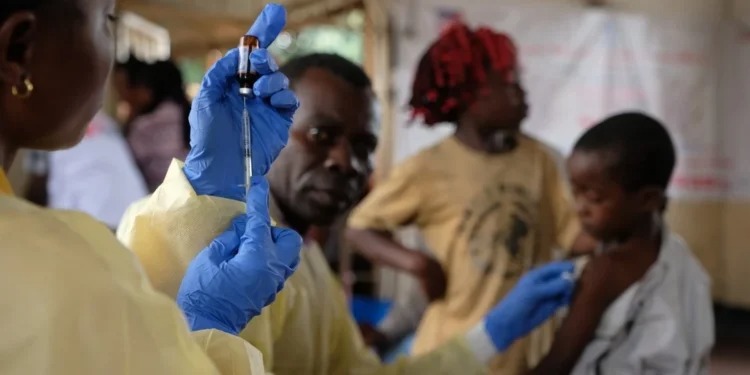Nigeria’s disease burden could reach 21% due to climate change and its escalating impact, a new report warns, emphasizing the urgent need for resilient health systems to address mounting climate risks.
The report, titled National Vulnerability and Adaptation (V&A) Assessment, was unveiled by the World Health Organization (WHO) during the Health Sector-Wide Joint Annual Review (JAR 2024) on Friday in Abuja.
It marks Nigeria’s first-ever Climate Health Vulnerability and Adaptation Assessment Report (VA).
The report warns that the risks and impact of climate change on the health sector are projected to worsen in terms of severity, duration and magnitude across all geographic areas of Nigeria.
“Under all scenarios and despite any efforts, the country’s risk to climate change is increasing and will continue to increase.” The report states these increased risks will create a situation that will impact healthcare capacity, increase the vulnerability of communities and create conditions more conducive to disease growth.
Dr Walter Mulombo, WHO’s Head of Mission and Country Representative for Nigeria said during the JAR 2024 that climate change is the greatest health threat of the 21st century.
“The report projects that climate factors could soon account for up to 21 per cent of Nigeria’s disease burden, underscoring the urgency of transformative action.”
“Rising temperatures, extreme weather events, and shifting disease patterns are already straining health systems, livelihoods, and well-being, especially among vulnerable populations. Together, we can protect Nigerians from the risks of a changing climate by building a health system that prioritizes resilience,” he added.
Climate-driven rise in infectious diseases
The report predicts an increase in waterborne diseases and a rise in cases of neglected tropical diseases (NTDs) such as Buruli ulcer, Guinea worm, and trypanosomiasis.
It also highlights that diarrheal deaths in children under five, driven by climate change, could account for about 9.8% of all diarrheal-related fatalities.
In addition, cardiovascular diseases are expected to reach 4.5 million cases by 2030, while diabetes cases could rise to 450,000. Hypertension is projected to increase from 900,000 cases in 2020 to 1.6 million by 2030.
Neurological disorders and self-harm are also expected to rise, with mental health cases increasing from 2.6 million in 2020 to over 3.1 million by 2030.
Other health concerns include a rise in asthma, respiratory illnesses, and tuberculosis, with the latter expected to increase from 41,000 to 52,000 cases. Vector-borne diseases, such as malaria and yellow fever, are also predicted to escalate as environmental conditions change.
The report identified the most climate-vulnerable states in Nigeria as Kebbi, Zamfara, Katsina, Kaduna, Jigawa, Taraba, Bauchi, and Yobe. Other high-risk areas include parts of Niger, Kwara, southern Cross River, and Imo and Abia states.
It also forecasts that 2050 temperatures across Nigeria will rise by 1.0 to 1.1°C under moderate climate scenarios, with increases of up to 3.0°C in extreme cases. This could lead to a doubling of heat-related deaths, from 2.5 to 5 per 100,000 people by 2080.
Additionally, the report highlights that climate change will bring increased rainfall, putting an additional 800,000 people at risk of flooding by 2030
Call for Resilient Health Systems
In response to the findings, the Coordinating Minister of Health and Social Welfare, Dr. Muhammad Pate, shared insights via his official X handle.
He noted that the report provides essential insights into the impacts of climate change on health across Nigeria.
“By identifying climate-related health risks, the Report supports the creation of a resilient health system capable of addressing the challenges posed by a changing environment, underscoring our commitment to sustainable health security and the well-being of Nigerians,” he stated.
Comparing Nigeria’s climate-related disease burden with other African countries
Climate-related health burdens vary by country, Nigeria’s climate-related disease burden is among the highest in Africa.
The overall trend across Africa shows that countries with similar climatic conditions, such as Kenya, Uganda, and South Africa, are experiencing rising health crises as a result of climate change.
When compared to other African countries like Kenya, Uganda, and South Africa, Nigeria faces similar climate-related health challenges, including rising cases of diseases such as malaria and respiratory illnesses.
However, countries like Ghana and Senegal have made more progress in reducing their health burdens and improving child survival rates
In contrast, Nigeria’s high malaria rates and relatively low vaccination coverage leave it particularly vulnerable to the worsening impacts of climate change.

